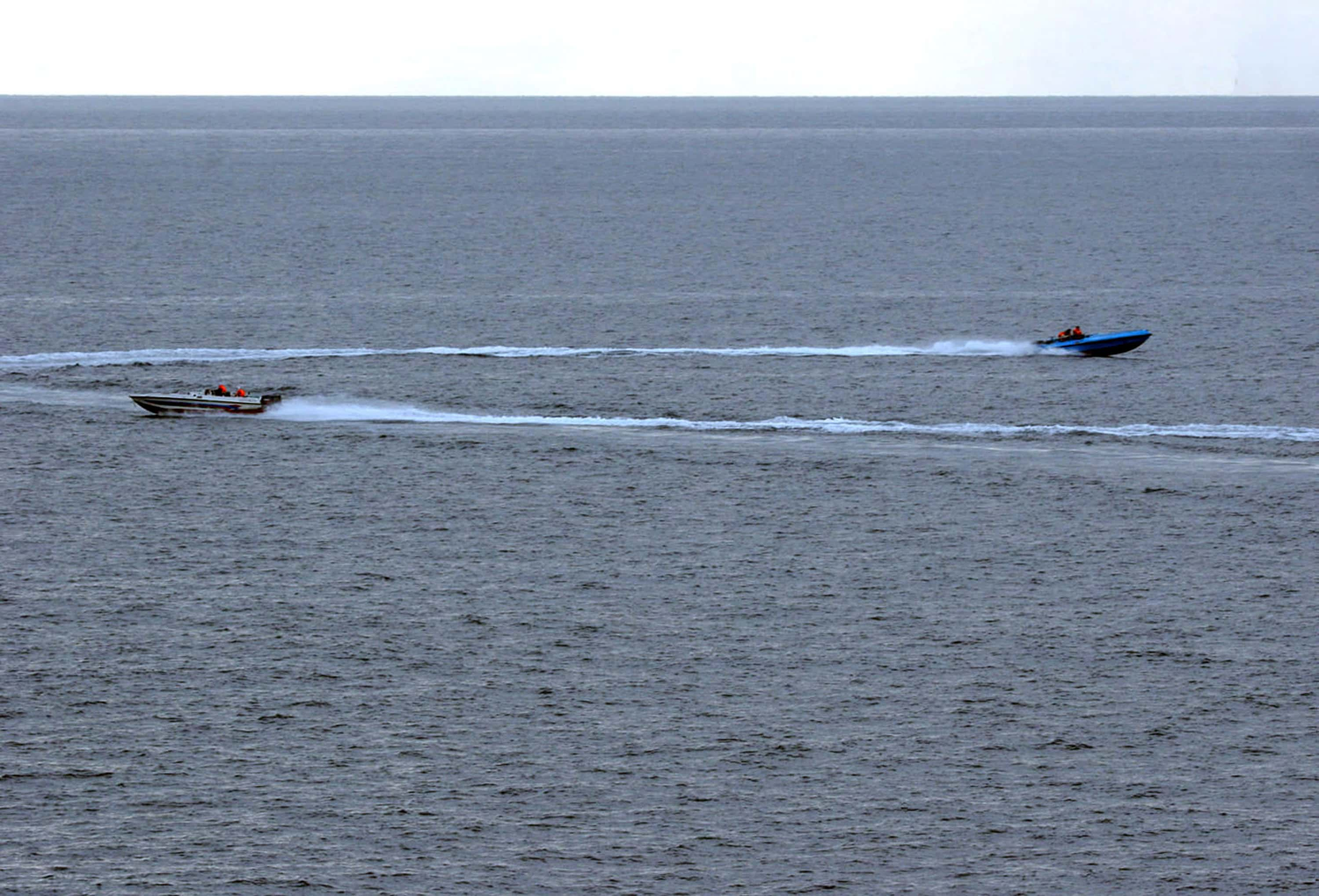Vice Admiral Sam Paparo says US has reached ‘uneasy deterrence’ with Iran after months of attacks at sea

A top American Navy official in the Mideast on Sunday, December 6, conceded that the US has reached an “uneasy deterrence” with Iran after months of attacks and aggressions at sea. Relations between the US and Iran have plummeted in the time of President Donald Trump, particularly over the multilateral deal that was signed with the Middle-eastern nation by the former Barack Obama administration in 2015 to put its nuclear ambition under control.
Vice Admiral Sam Paparo, who oversees the navy’s 5th Fleet based in Bahrain, spoke on the matter while addressing the annual Manama Dialogue hosted by the International Institute for Strategic Studies. He stressed on having a “healthy respect” for both Iran’s regular navy and the naval power of its paramilitary Revolutionary Guard, the Associated Press reported.

“We have achieved an uneasy deterrence. That uneasy deterrence is exacerbated by world events and by events along the way,” Paparo said. “But I have found Iranian activity at sea to be cautious and circumspect and respectful, to not risk unnecessary miscalculation or escalation at sea.”
Iran though has not targeted a tanker in recent months as was the case a year ago — attacks on an oil tanker off Saudi Arabia and a cargo ship near Yemen happened more recently. The Iranian-backed Houthi rebels in Yemen were suspected though they have not issued a statement on it yet, the AP report added.
Paparo's tone different from predecessor Malloy
Paparo, a former Navy fighter pilot who also served as the director of operations at the military’s Central Command, has given a viewpoint which is in contradiction with Vice Adm James Malloy, his immediate predecessor. In August, Malloy said in one of his last remarks to the media that Iran was “reckless and provocative” and trying naval drills to “lower the denominator until they’re sure that they can look like they’ve won something.”
It was during Malloy’s tenure that Iran seized oil tankers besides getting blamed for a series of mine explosions targeting tankers. Tehran denied the charges though personnel of the Revolutionary Guard were filmed taking a mine that did not explode away from one tanker.
The American Navy often gets involved in encounters with the Guard, whose speed boats race with US warships in the Persian Gulf and even engage in live-fire drills with machine guns and missile launchers. While the Guard generally patrols the shallow waters of the Gulf and the Strait of Hormuz, its narrow mouth, the regular navy, on the other hand, operates in the Gulf of Oman and the Arabian Sea.
Paparo also dismissed the notion that the naval service was still loyal to Iran’s former shah, who was toppled in the Islamic Revolution of 1979. He didn’t consider that there is a difference between the professionalism of the two services. “Forty-one years into the revolution, I think we can dispense with that notion,” the vice-admiral said. “I sincerely doubt there’s a difference among them.”
Iran says it has always been professional
The Iranian side said its naval forces have always conducted themselves in the “most professional manner”. Alireza Miryousefi, a spokesman for Tehran’s mission to the United Nations was asked about Paparo’s remarks and to that, he said the Iranian naval forces “have always conducted themselves in the utmost professional manner while patrolling in our territorial waters and the greater Persian Gulf”.
He also slammed the US for asking why its forces were stationed in a region that is 7,000 miles away from its territorial waters. “Any suggestion to the otherwise is categorically false,” Miryousefi told The Associated Press. “The question that should be raised is, what is the US Navy doing 7,000 miles from its territorial waters?”
The 5th Fleet has been patrolling the Mideast as part of a mission to shield energy supplies to pass swiftly through key regional chokepoints like the Strait of Hormuz, through which a fifth of all oil transits. Iran has threatened to close the strait in the past.
Paparo also disagreed with the viewpoint that the 5th Fleet’s mission would be hit by the Navy potentially reconstituting a First Fleet responsible for the Indian Ocean Region. Last month, Navy Secretary Kenneth Braithwaite said if the US wanted to have a truly Indo-Pacific presence, it needed a new “1st Fleet” in the Pacific which is based closer to the Indian Ocean, possibly in Singapore.










